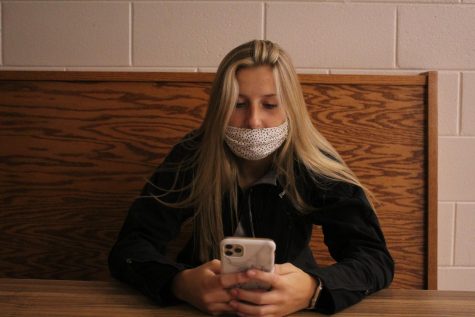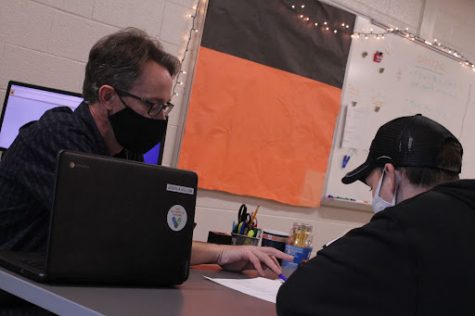Brain of our Generation
Environmental effects of anxiety
Junior Tylin Ayers, three sport athlete, knows anxiety. “I struggle getting the motivation to do homework after sports, due to anxiety.”
Tylin Ayers, a 16-year-old, lives with his biological mother and his stepfather. Ayers is the only child with step siblings and a biological father who lives in Indiana, so he does not get to see them much.
The three-sport athlete plays basketball and football and throws shot put, which calls for constant time at school for conditioning and weight training; on top of that, he spends 2-3 hours on homework a night.
Since Ayers goes to a nearly all-white school, he has had some conflicts at school and even walking on his own street he’s dealt with racial slurs.
“I go through a lot of anxiety,” Ayers said. “I try not to show or talk about it, but sometimes that makes it worse.”
It may not seem like a big deal to some adults, but balancing school, work and personal life can present a struggle.
“Some adults just think of it as an excuse as if they never dealt with it as a teen,” Ayers said.
Anxiety remains as a natural part of life, but with anxiety disorders, teens find these feelings interfere with their everyday life.
Anxiety, and it turns out, originates from our environment.
Standardized testing, requirements to graduate high school, gun violence, cell phones and the pressures of social media. These all affect a young person’s environment.
By the time children hit the age of 14, around 50 percent of all mental illnesses will set into place for a lifetime and nearly 50 percent of youth did not receive mental health services in the previous year according to Mayo Clinic.
Throughout this time, adolescents have experience changes in hormones. Reactions to stress are associated with enhanced secretion of a number of hormones including glucocorticoids, catecholamines, growth hormone and prolactin, which is one contribution to stress or anxiety. But, that’s not always the culprit. Anxiety could appear from experiencing traumatic effects at a young age, according to the U.S National Institute of Health.
Additionally, financial stress becomes a bigger issue because as teens age; their parents expect them to get jobs.
Learning to rely on themselves adds a lot of stress because they have been guided their whole lives, by what some call “ lawn mower parents” who go to extraordinary lengths to prevent their children from experiencing the real world according to WeAreTeachers, a website for educators. Then, all of the sudden, the parents drop like flies and expect their children to gain all this knowledge by themselves.
“Instead of helping their kids when they’re stressed, they say ‘Toughen up kid, you’ll get through it,” Ayers said.










